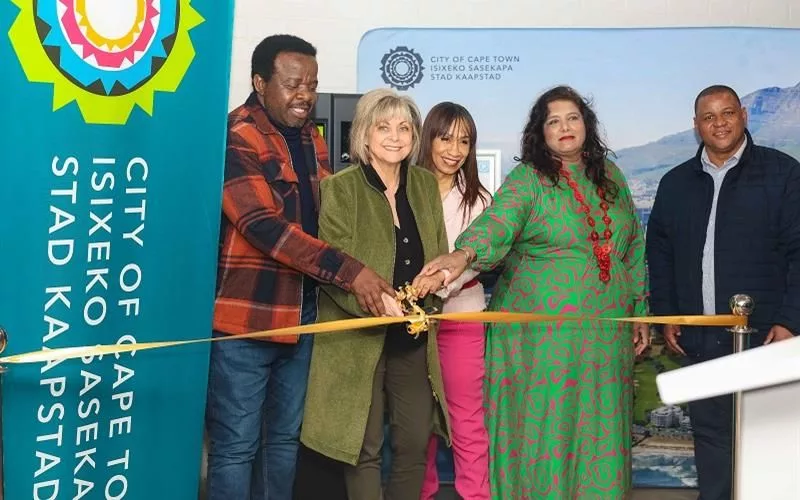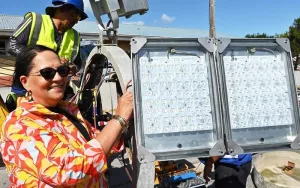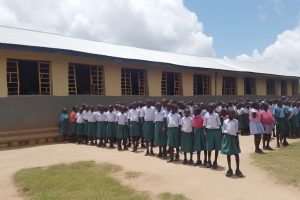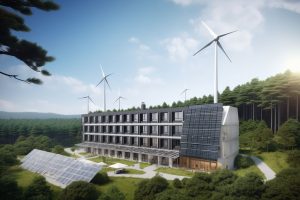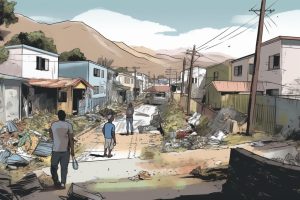Cape Town City has introduced a new Smart Parking System at the Civic Centre that aims to enhance the parking experience at Artscape Theatre. With an advanced technology system and affordable pricing, patrons can enjoy a secure and convenient facility during performance hours. This initiative reflects Cape Town’s dedication towards improving the urban experience and catering to the changing needs of its visitors and citizens.
Modernizing Maitland Crematorium: A Fusion of Tradition, Innovation, and Respectful Commemoration
The Maitland Crematorium in Western Cape has undergone almost R18 million worth of improvements, which include the installation of two new cremators, an enlarged cold room, and a cuttingedge SCADA Electronic Logging System. The upgrades were necessary to meet the demands of the increasing population and to deliver efficient and highquality services to the community. The upgrades highlight the importance of technological innovation, while the city’s commitment to respecting and honoring cultural practices and preferences of its residents is evident in its investment in facility improvements.
Transformative Restructuring of the Committees within the National Council of Provinces
The transformative restructuring of the National Council of Provinces (NCOP) during its inaugural meeting in 2024 consolidated Select Committees from eleven to ten and formed a Subcommittee on the Review of the Council Rules and Programming Committee of the 7th Parliament. The Select Committees act as the “engine room” for provincial matters and the Council’s overall function, while the NCOP plays a fundamental role in safeguarding provincial interests within Parliament. The restructuring aims to enhance efficiency and oversight over different government departments, propelling the NCOP towards greater efficiency and effectiveness.
V&A Waterfront in South Africa is embracing renewable energy by aiming to use 70% of it in five years through a power purchase agreement with Etana Energy. The company also plans to install rooftop solar panels to increase renewable energy to almost 80%. The goal is to be netzero carbon emissions by 2035, with significant progress already made in reducing carbon emissions, water usage, and waste. The waterfront’s sustainability strategy involves everyone, including tenants, residents, staff, and visitors, and serves as an example for others to follow.
The Khayelitsha LED highmast renovation project is replacing old highmast lights with stateoftheart LED fixtures in an effort to promote economic growth, increase safety, and reduce energy usage. The first phase is being implemented in the neighborhood of Makhaza, with a total of 222 highmast fixtures to be replaced across Khayelitsha. This initiative represents a significant investment in the city’s key infrastructure and signifies a significant shift towards urban sustainability. However, the success of this initiative depends on collective responsibility and the support of the community.
The City’s Water and Sanitation Directorate has recently completed the complex task of repairing a collapsed 30meter long bulk sewer main pipeline located on Prince George Drive, Retreat. The repair process, which began in March, was challenging but successful, and it is now time to focus on reinstating the road for public use.
Keeping track of water usage is essential for ensuring accurate billing, efficient water usage, and preventing water wastage. To achieve this, the City of Cape Town’s Water and Sanitation Directorate has launched a Water Meter Replacement Programme worth R108 million. The program aims to replace aging and malfunctioning water meters across the City, beginning in the 2020/2021 financial year.
Deputy Minister Obed Bapela’s recent visit to SAFCOL highlights the company’s importance as a significant player in the forestry industry. SAFCOL’s financial performance has significantly improved, and the company’s growth strategy aims to consolidate its position, maximize revenue, and profit growth in the future.
The COVID19 pandemic has severely impacted the tourism industry in South Africa, with many businesses struggling to stay open. As a result, the Green Tourism Incentive Programme (GTIP) has been established to support small and mediumsized tourism enterprises to promote sustainable tourism practices.
The contentious issue of land restitution in South Africa continues to be challenging, particularly in cases such as District Six in Cape Town. This oncethriving community was forcefully evacuated by the apartheid government in the 1960s and 1970s, leaving the land vacant for decades.
South Africa has experienced frequent power outages or blackouts in recent years, disrupting businesses and homes. The energy crisis has hit the Western Cape hard, prompting the government to take significant steps toward making its facilities energyresilient and protecting critical services from blackouts.

